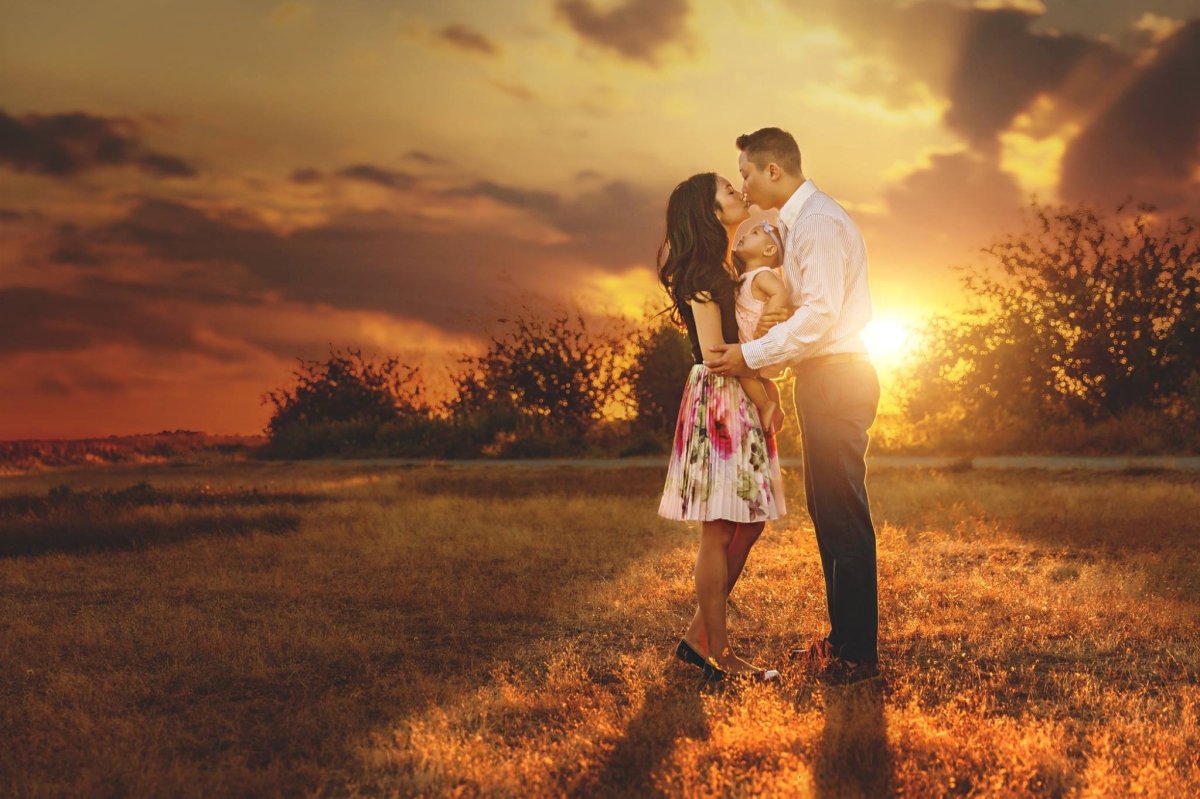In January 2016, six months after Carmen Hou gave birth to a healthy baby girl named Evelyn, she noticed two tiny nodules on her left breast. At first she and her husband, a radiologist, thought the lumps were related to breastfeeding.

An ultrasound confirmed it was nothing, possibly hormones from the pregnancy and nursing.
By the following winter, the lumps had grown larger and Hou was feeling tiny shocks in her chest. She returned to the doctor and this time tests confirmed her worst fears: the 32-year-old had Stage III breast cancer.
“That was probably the biggest shock of my life,” Hou said. Further tests showed that her tumour had grown to five centimetres and there was also a blemish on her spine. The cancer had spread, and she was in fact Stage IV.
“That’s the last stage, which is a pretty dire prognosis,” she added.
Together with the BC Cancer Foundation, we took a closer look at Hou’s shocking story and how cancer can strike anyone, anywhere, at any age.
A tough treatment
Roughly a month after her diagnosis, Hou began chemotherapy treatment. She went on to have a mastectomy of her left breast and surgeons also removed 20 lymph nodes from her underarm, 10 of which were cancerous, this is the first place breast cancer spreads to. The cancer had spread to three out of four quadrants of her breast.
She followed up surgery with two types of radiation and began a drug trial, called Ribociclib, that winter. Now, as she approaches the two-year mark of being on the medication, the cancer isn’t growing but she’s also not in remission. Hou has been told by her doctors that on average, patients need a new treatment plan around this time to keep up with disease progression.
“I do worry, going into this second year. Is this when the cancer is going to come back or spread or be found somewhere else?” she said.

Get daily National news
“I have a lot of cancer friends now and you know, a lot of really bad things happen. It can be bad news after bad news and I’ve had a couple friends pass away already. I see that stark reality and I’m around it, so I know it’s a possibility.”
A clear history
Wondering whether she’d live long enough to see her daughter grow up wasn’t among Hou’s concerns when she was pregnant. One in eight Canadian women develop breast cancer in their lifetime, but the disease doesn’t run in Hou’s family. In addition, breast cancer mostly occurs in women aged 50-69 years old, so Hou’s case is on the rare side – but it still happens.
“I hope with new scientific research that new drugs will be made available, drugs that could prolong my life or perhaps even eradicate my cancer so that I can have more years with my daughter,” Hou added. “I’m staying hopeful and praying that I can be alive to watch my little Evelyn grow up.”
Dr. Caroline Lohrisch, Hou’s oncologist and the department head of medical oncology at BC Cancer Vancouver, says better testing is needed to help avoid cases like this.
“Younger breast tissue is generally denser (the breast is less fatty, which happens with age) and therefore the breast tissue can obscure a mass, she said. “Fatty breasts are more ‘see through’ on a mammogram and cancers are easier to see if they are there. Adding ultrasound to mammograms for dense breasts can help increase the detection rate in women (of any age) who have dense breast tissue.”
Lohrisch emphasized that most women are not at risk for developing breast cancer in their 30s. However increased population-based genetic testing could identify women at risk from an early age, and in that population, MRI screening could lead to earlier detection and better outcomes.
“The challenge with that is the availability of the diagnostic tool. But maybe if we had very defined criteria for who should have it then you wouldn’t overwhelm that resource,” she said.
“Because I treat breast cancer I see a big value in research around better treatment. But there’s no question that earlier detection or identifying patients at risk before they even get cancer has huge value.”
Looking towards the future
For now Hou takes things day by day, and relies on her faith to get her through. She also made a promise to herself to travel somewhere new once a month. To date, she and her family have travelled around the globe to places like the Maldives, Spain, France, Belgium, Tokyo, Bali, Kuala Lumpur, Croatia, Italy, Morocco, and various cities across the United States and Canada.
Through the BC Cancer Foundation she’s also discovered an art therapy group that has been a wealth of support.
“It’s been a great outlet for my healing journey. I never really did art except for grade school and this has opened up a side of me that’s really calming and peaceful,” she revealed. “I’ve also met some lovely friends through the group that have been such a huge part of my journey.”
Hou urges all women—no matter their age—to maintain regular checkups and to perform self-examinations at home. She never thought cancer could happen to her, and she doesn’t want to see another mother and family in her position.
“Listen to your body and if something doesn’t feel right then get it checked out,” she said. “If it’s still bothering you, then maybe ask again. Just noticing any changes and having that open communication with your doctor is really important for early diagnosis.”
Help the BC Cancer Foundation change cancer outcomes this holiday season by visiting www.bccancerfoundation.com


